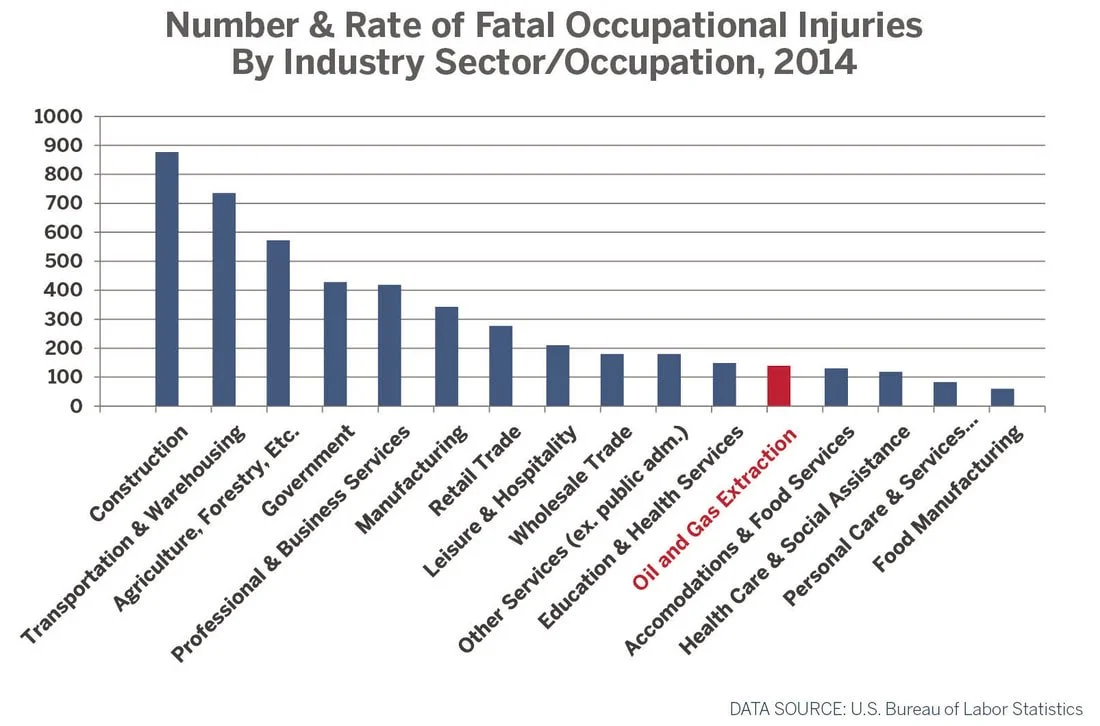COGA Fact Sheet: Occupational Safety
Oil and natural gas is one of the most regulated industries in the nation, and statistics prove that it continues to be an industry with a good safety record. The oil and gas industry holds itself to extremely high standards and is always working to improve upon its safety record.
The Colorado Oil & Gas Association in 2018 hosted its first-ever Energy Safety Summit and invited all of Colorado’s safety organizations to speak. The effort is only part of a broader initiative to continue making a safe industry even safer. Occupational safety for the oil and natural gas industry is nothing new. Between 2003 and 2013, the U.S. oil and gas extraction industry experienced unprecedented growth, doubling the size of its workforce and increasing the number of drilling rigs, yet during that 11-year period the annual occupational fatality rate significantly decreased.
Safety by the Numbers
Data from the Bureau of Labor Statistics, shows that out of 86 measurable sectors, oil and natural gas extraction is the seventh safest industry in relation to the total number of recordable incidents producing injury.
Bureau of Labor Statistics data shows that the number of oil and gas extraction worker fatal injuries fell to a record low in 2016, 29 percent lower than 2015 and 56 percent lower than 2014.
The Workplace Safety Report (WSR) compares the U.S. oil and natural gas industry to comparable the private sector. The rate of job-related nonfatal injuries and illnesses for the oil and natural Gas industry was 1.7 per 100 full-time workers, compared to a rate of 2.8 for the entire U.S. Private sector.
OSHA data also show that the number of “severe injuries” reported in the oil and gas extraction and support activity sectors dropped 29 percent in 2016 from 2015 levels.
In 2016, injury incidence rates remained well below 2014 rates, at 1.3 per 100 full-time workers and less than half the overall national rate (2.9 per 100 full-time equivalent employees)
Industry Safety & Accountability
Colorado Oil and Gas Association (COGA) Operational Safety Committee: To ensure effective communication between companies regarding operational lessons and best management practices, the committee is a commonwealth on safety, environmental, regulatory, and community issues, as well as a resource for first responder education and major incident prevention.
Colorado 811: Excavator and public safety education regarding Colorado’s underground infrastructure including oil and natural gas flowlines and ensuring compliance with applicable regulations.Colorado Oil & Gas Commission (COGCC) Flowline Regulations: Oversight rules set forth installation and design standards, equipment and facility registration obligations, enhanced integrity management, additional record keeping and reporting, and a stringent process for abandonment of flowlines.
Colorado Oil and Gas Association (COGA) Energy Safety Summit: Gathering of state regulatory agencies, policy stakeholders, industry leaders, and several state-based operational safety organizations to discuss a variety of safety initiatives underway within Colorado’s oil and natural gas sector.
Occupational Safety Organizations
4 Corners Safety Network
American Society of Safety Professionals (ASSP)
The Energy Industry Training Program – Colorado Mountain College
DJ Basin Safety Council
The Front Range Emergency Resources Co-Op
Rocky Mountain EHS Peer Group
Western Slope Safety Council (WSSC)
American Industrial Hygiene Association – Rocky Mountain Section
AssuredPartners Energy
Colorado Safety Association (CSA)
DJ Operators Consortium
Rocky Mountain Education Center (RMEC) OSHA Education and Training Center – Red Rocks Community College
SafeLandUSA
Additional Resources & Information
Bureau of Labor Statistics (BLS) | www.bls.gov | Injuries, Illnesses, and Fatalities | Census of Fatal Occupational Injuries Summary, 2016 | Fatal Occupational Injuries, 2015
Occupational Safety and Health Administration (OSHA) | www.osha.gov | Sever Injury Reports
Colorado Oil & Gas Conservation Commission (COGCC) | www.cogcc.state.co.us




